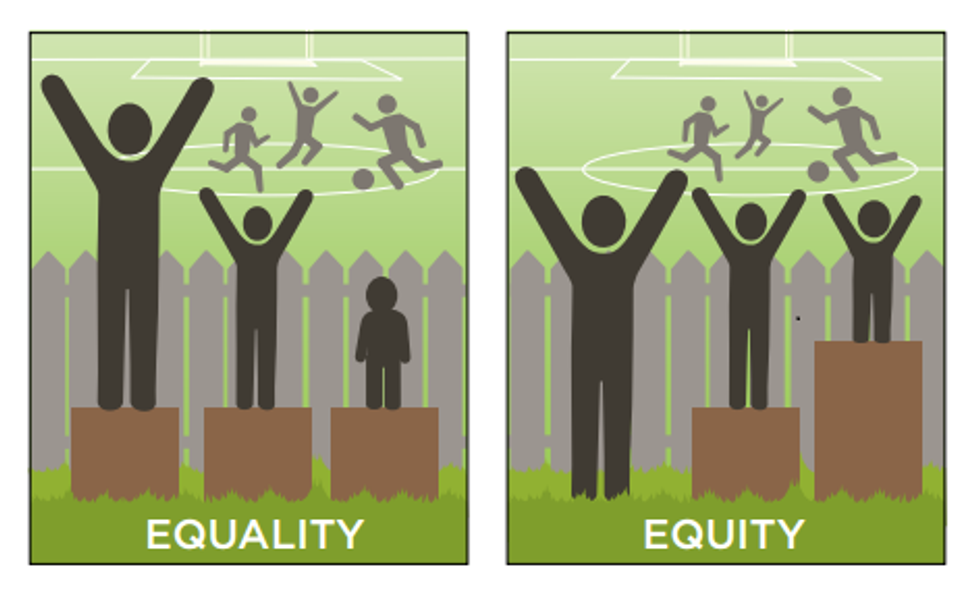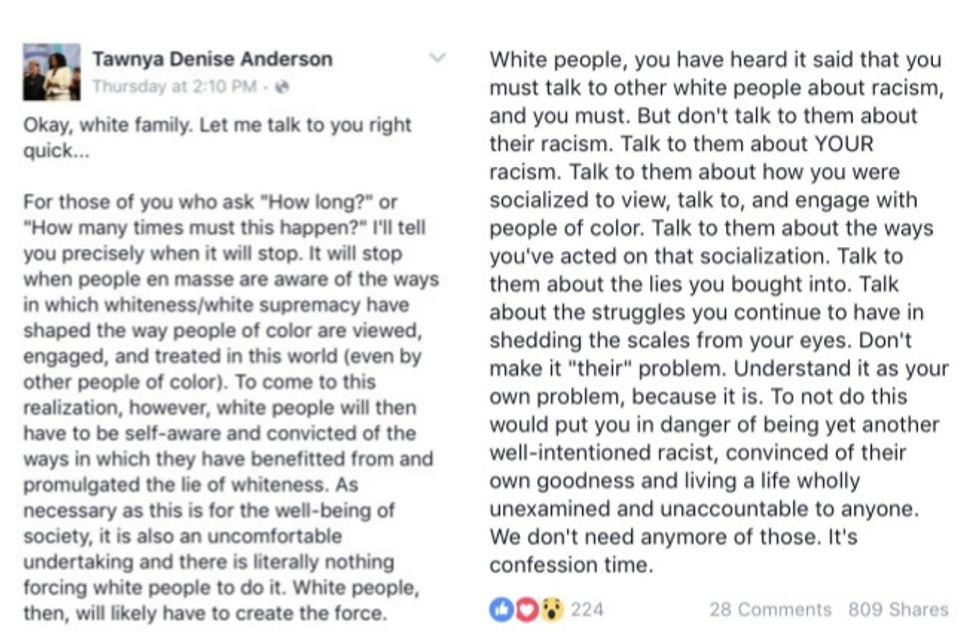When I look at the core intentions of those who parade that #AllLivesMatter, I get it. Really. As a rule of thumb, all humans have a right to justice, autonomy, beneficence and non-maleficence. This is absolutely a notion that nearly all people can get behind. However, the use of #AllLivesMatter is often in retaliation to the #BlackLivesMatter movement. This is a concept that, for lack of eloquence, pisses me off.
The Black Lives Matter movement was founded by Alicia Garza, Opal Tometi, and Patrisse Cullors in response to the anti-Black racism seen in the case of Trayvon Martin. The heart of the movement is to bring attention to the trends, policies and attitudes that devalue the lives of persons of color. Any denial of the historical and current anti-Black racism within our culture would be (most politely) deemed as ignorant. Instances of anti-Black racism can be seen in our systems of health care, education, criminal justice, housing/real estate and media (this is only to name a slight few). So, I'm writing this to further explore the principles of the #BlackLivesMatter movement and why we have to stop making it about #WhiteFeelings.
#BlackLivesMatter is an equitable movement. Over the years, "equal rights" has become a beloved buzz-phrase. We love preaching for equal rights, world peace and free ponies for all. A lot of these ideologies exist beautifully in theory, but could only exist in a world free from established systems of oppression. When we shift our movements toward equity, we are acknowledging the collective struggles from groups that have been marginalized by those in power. When we say #BlackLivesMatter, we are not saying that #WhiteLivesDon't, we're saying that black lives are in critical need of our attention.
The guiding principles of the Black Lives Matter movement include commitments to: diversity, restorative justice, unapologetically black* support and freedom, globalism, transgender affirmation, black women, collective value, empathy, queer affirmation, black villages, black families, loving engagement and inter-generationality.
"When we say Black Lives Matter, we are broadening the conversation around state violence to include all of the ways in which Black people are intentionally left powerless at the hands of the state. We are talking about the ways in which Black lives are deprived of our basic human rights and dignity.
#BlackLivesMatter is working for a world where Black lives are no longer systematically and intentionally targeted for demise. We affirm our contributions to this society, our humanity, and our resilience in the face of deadly oppression. We have put our sweat equity and love for Black people into creating a political project–taking the hashtag off of social media and into the streets. The call for Black lives to matter is a rallying cry for ALL Black lives striving for liberation."
The utilization of #AllLivesMatter in place of #BlackLivesMatter may be with the intent to reiterate the need for basic humanity, but it ultimately silences the black voices that need to be heard in these periods of healing and growth. Even claiming that #AllLivesMatter ignores the existing racism (even the casual, everyday instances) that need to be addressed and dismantled. It is a blind statement. No matter how well-mannered, #AllLivesMatter is yet another way to gloss over the anti-black violence and racism in our communities.
As summarized in "'All Lives Matter' is and always was racist - and this weekend's Trump rally proved it" by Dave Bry of The Guardian:
"If you choose to say those words “all lives matter” in a conversation with your friends, or if you type the hashtag on Twitter or put it up on Facebook or something, you should know what you’re saying. You are not saying that all human life is equal. You are saying that there is no racial disparity in America. You are refuting rafts of statistics that prove there is racial disparity in America. You are saying, simply and straightforwardly, that black lives do not matter. At least not as much as white ones do. Is this what you want to be saying?"
If you are white, #BlackLivesMatter is not an attack on your racial identity. If you are white you will never experience anti-black racism (or any racism at all, for that matter) and cannot speak to these struggles. If you feel yourself becoming defensive, challenge it. As a person who receives systemic benefits as a result of their skin color, it is your responsibility to remain educated and active in the #BlackLivesMatter movement. It is your responsibility to validate and honor stories coming from people of color and people who experience anti-black racism. It is your responsibility to not make this about white people.
To learn more about the #BlackLivesMatter movement and how to get involved, check this out!





















